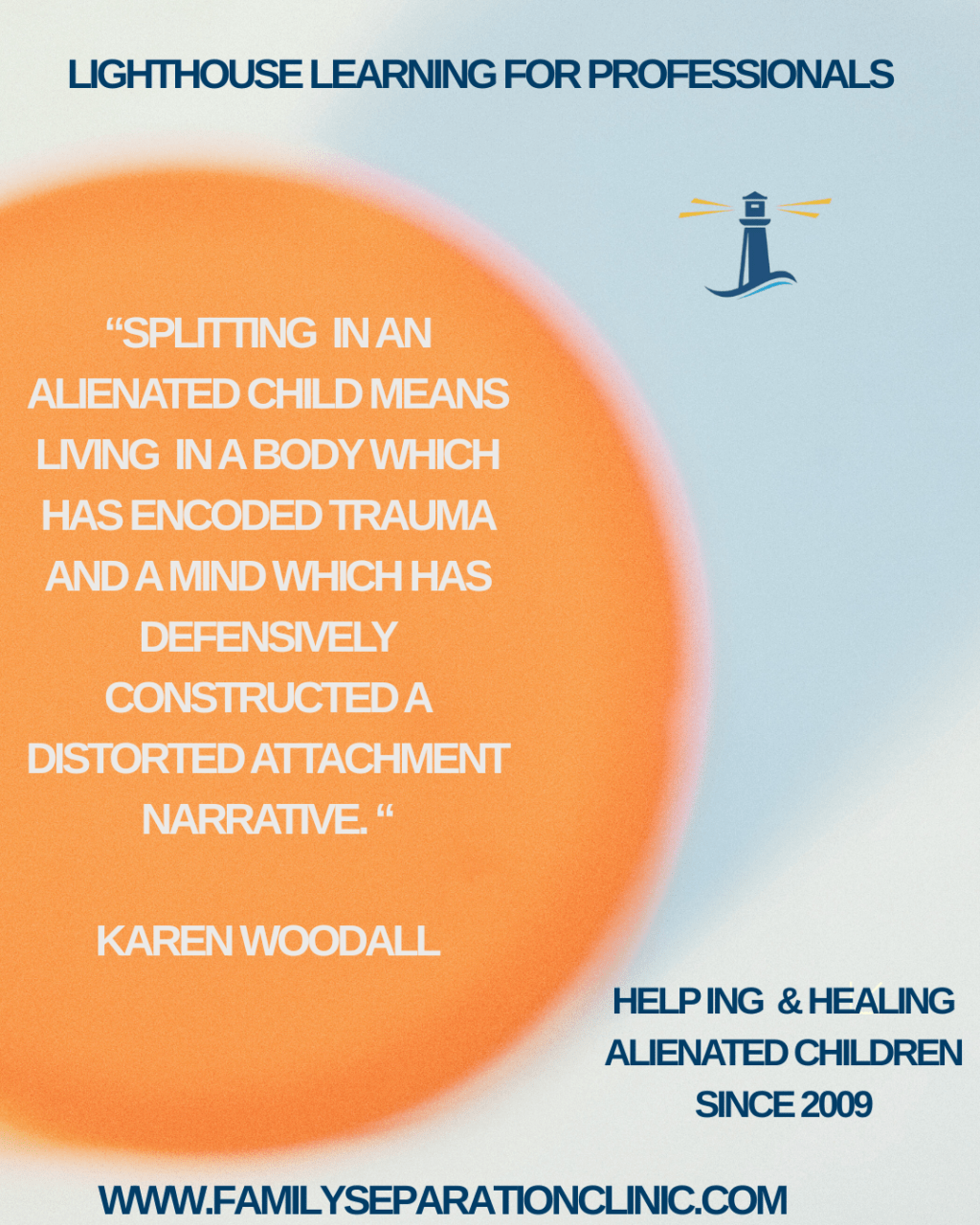Recently, the work that I do with families in court has been, shall we say, less than satisfying, despite the successful outcomes we have achieved for children in the process. Thinking this through in one of my meanders around London, I have begun to realise that this is because it feels as if I am operating on families using blunt implements in a war zone. Hearing from others around the world who work in this field, that I am not alone in feeling this, as I meander I turn back to the ways in which children need a better way of being helped when they are being alienated. As well as the way in which a much a much greater degree of healing needs to be applied to these families in the psychological war zone and the court needs to be the protective factor in assisting this work to be done.
Children who are alienated suffer serious psychological damage and it can take them many years to recover from the harm that is done to them. Chidlren are vulnerable to the persuasions of others and their brains are not fully formed for perspective and reasoning. Healthy parenting does not cause a child to fully reject a parent, only leakage of hostility, blame and resistance causes that. Children who are justifiably rejecting a parent, often go to great lengths not to reject before they finally begin to do so and even then they will blame themselves first before they blame the parent for what has been done to them. Only in the scenario of parental alienation do we see the self righteous echoes of the influencing parent and the adamant and complete rejection by the child. The child’s mind has been affected by the parental hostility in such scenarios and whether that is conscious or unconscious, the damage is the same, the child arrives at a psychologically split experience of the world where everything is good or bad but never in between.
You will recall that we were in Zagreb in the summer, where we worked with Psychologists and Psychiatrists at the City Child Protection Centre. There we met a Judge from the Family Court in Zagreb who told us about the Centre’s approach to interviewing children in child sexual abuse cases, some of which will be those cases we work with, where children are influenced to make false allegations. I was intrigued and heartened to hear the way in which this Judge was psychologically aware and how she heard cases at the Child Protection Centre with the child being interviewed remotely by a Psychologist. We discussed the inquisitorial system of justice which prevails in Croatia and compared it to our adversarial system. There, for me, lies the kernel of a new way of working with families affected by parental alienation, a human way and one which provides for the whole family, the intervention which creates the generational change which arrests these patterns of behaviour in the here and now. Meandering yesterday, as I often do through the streets of London I thought about how simple a new way of working with these cases could be.
Post separation arrangements for children could be a mandatory requirement for all separating parents to achieve and have ratified at the time of their divorce (as in the Scandanavian countries)
Using the principles of early intervention, any such case could be heard by a Judge with inquisitorial powers at the outset of any relationship issues arising in the post separation arrangements for care of children.
Any case showing signs of problematic behaviour patterns in parents could be dealt with immediately, domestic violence and sexual abuse allegations could be heard on a fast track system within the first seven days of the issue being registered in court. Findings made would then guide all interventions with the family thereafter.
Guidance for how to care for children in co-parenting households could be made available to all separating couples through the legal system.
Solicitors could become highly skilled triage mediators, helping to identify only those cases where mental health problems are the cause of problems and referring them to the mental health professionals trained to deal with those matters.
Barristers would be only necessary in those cases where parental health is in question.
Every mental health professional engaging with a child in the midst of parental conflict where alienation is a risk, would be required to be trained in psychological understanding of the risk of harm to children in such circumstances.
It all seems so simple to me and yet, having worked in the UK family courts for many years and having advised government on social policy around the separated family and having written about, worked with and helped separated families for over twenty years now, I am increasingly aware that the reform of this arena is just not simple.
Not because the answers are not simple, but because the way in which the whole issue is set within the cultural expectations of a society which has built an incredibly complex and wieldy approach to resolving the issues. Look closer and you will see that the complex structure is in fact not built to meet the best interests of children but the best interests of their parents, or at least, within the adversarial system, the best interests of one of their parents. We have built a system which actually rests upon the notion that the best outcome for children after separation is to have one parent with whom they live and one with whom they are more distant from. A popular 1970’s idea which came in with the rise of the divorce rate. I leave it to you to decide whose interests that served.
It is 2016 for goodness sake. Men and women are more keen than ever to be part of their children’s lives before and after separation. When things go wrong in the separation (and they inevitably will because you cannot pull apart a relationship without there being some fall out), the children become at risk of the becoming the conduits through which parents fight their battles. Alternatively, they become the conduits through which the unwell parent expresses the decompensation into mental ill health. Either way, when this happens intervening to protect the child is essential. It’s not about being on one side or the other, is is simply about protecting children from the psychological war zone that often erupts in these cases. Our whole focus should be upon encircling the children with protection and then stabilising the parental battle, identifying the issues, triaging the case and getting people the help that they need to stop what they are doing. That way alienation reactions are prevented from escalating, both parents are helped and the children do not have to lose a parent to keep the other.
I’m going out for another walk shortly, as I proceed I will be pondering on all of this, largely as a defence mechanism I deploy lately, to protect myself against a sense of helplessness that strikes at times in this work.
The world that children live in so simple, it is full of love for the adults around them and for the unfolding world and the joy this brings them. It should not be infected by adult issues and adult concerns and we should be able to protect children in the midst of parental separation better than we currently do. We should take responsibility so that children do not have to.
It really is, that simple.




Leave a reply to steff Cancel reply